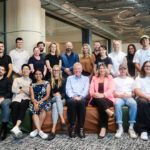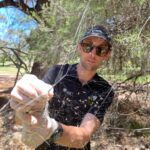C054/11
A new national study is to look at the social and economic outcomes for young people with a disability who complete apprenticeships and traineeships.
Researchers at the Curtin University Centre for Research into Disability and Society (CRDS) in the School of Occupational Therapy and Social Work at Curtin will lead a consortium with local WA organisation EDGE Employment Solutions Inc., and the peak national bodies Group Training Australia and National Disability Services Ltd (formerly known as ACROD) to determine what positive outcomes result if someone with a disability completes an apprenticeship or traineeship.
The project will receive $405,000 over a three year period and is one of five national competitive grants funded by the National Centre for Vocational Education Research.
Professor Errol Cocks, Director of CRDS, said while people with a disability generally have low rates of participation in traineeships and apprenticeships, when they do undertake such programs, evidence showed they completed them at similar rates as people without disability.
“It will be very useful to learn about the benefits of such training if apprenticeships and traineeships are successfully completed,” Professor Cocks said.
The study will consist of two data collection methods. The first will be a survey of 300 individuals across Australia who have a disability and, to serve as a comparison group, 75 individuals without a disability who have successfully completed an apprenticeship or traineeship. The second will be in-depth interviews through case studies with 30 individuals with a disability selected from that group.
“We are hoping to identify the key social and economic benefits that have been experienced by this study group,” he said.
Economic benefits may include an increase in income and career development, but also broader economic benefits to society as a whole, for example, decreased access to income support.
From a social perspective, the benefits are likely to reflect inclusion in community activities, and enhanced friendship and social networks that come from participation in work.
Professor Cocks said the findings would ultimately allow better strategies to be developed to encourage greater participation in apprenticeships and traineeships by people with disabilities.
“We believe the study will indicate that people with disabilities achieve better outcomes from engagement in work and earning an income than relying on welfare and undertaking alternatives to employment.”
Contacts:
Professor Errol Cocks, Director, Centre for Research into Disability and Society,
Curtin Health Innovation Research Institute, Curtin University
Tel: 08 9266 3621; Email e.cocks@curtin.edu.au


